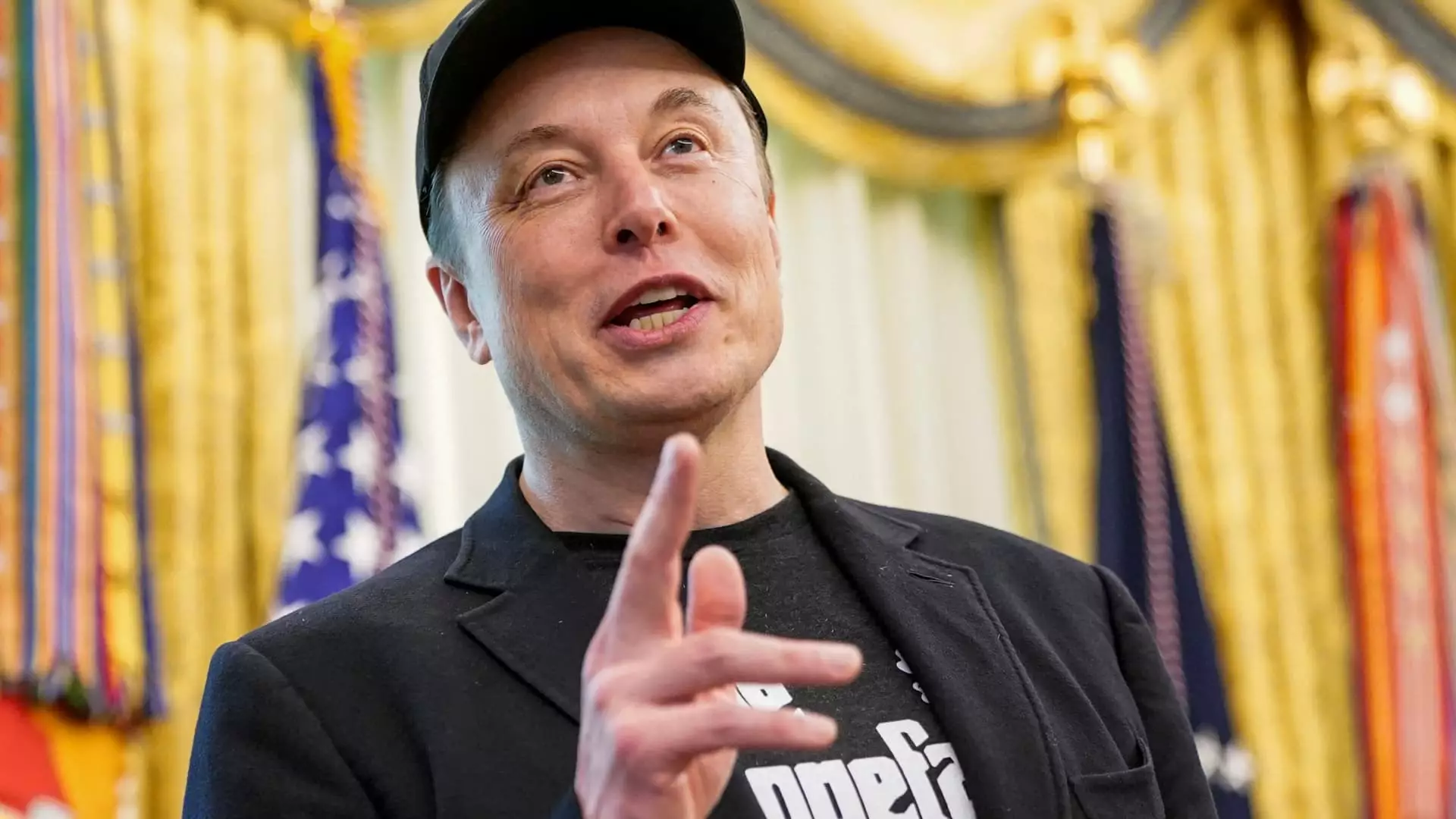Elon Musk has long occupied a prominent spot on the world’s stage, not just as a technological pioneer but as a vocal social commentator. Recently, his critical assessment of a massive tax-and-spending bill endorsed by President Donald Trump has ignited a fierce debate on fiscal responsibility. Musk’s striking label—”disgusting abomination”—echoes the sentiments of many worried citizens who fear the escalating national debt imposing an unsustainable burden on future generations. As someone who has publicly supported Trump’s policies, Musk’s call-out reflects an unexpected schism between fiscal conservatism and the realities of governance.
Musk’s outburst, conveyed through his platform X, lamented that the bill will significantly inflate the federal budget deficit—projected to soar to an astounding $2.5 trillion. These figures resonate painfully for those of us who have witnessed successive administrations overspend, leaving an increasingly fragile economy to bear the weight. The billionaire’s passionate rebuke underscores a vital question: How far can government go in its insatiable appetite for spending before it adversely impacts everyday Americans?
The Reaction from the Powers That Be
In an age where public figures wield significant influence, it’s puzzling to observe the administration’s dismissive reaction to Musk’s concerns. Press Secretary Karoline Leavitt’s response, characterized by a blend of defiance and denial, reveals how deeply entrenched both fear and arrogance have seeped into the current political milieu. Labeling Musk’s criticism as inconsequential flies in the face of empirical data—the bipartisan Congressional Budget Office has projected that this budget package could hike the deficit by an alarming $3.8 trillion over the next decade.
It’s particularly revealing how those in power often choose to downplay criticism when it doesn’t align with their agenda. This is a troubling sign of governance that merely prioritizes maintaining the status quo over addressing genuine concerns. Such reactions showcase a detachment from the worries that plague the everyday citizens who might feel the repercussions of policy decisions in their wallets.
Cross-Party Alliances and the Need for Action
Interestingly, Musk’s criticisms have found unexpected allies in unlikely places, as certain Republican lawmakers, typically seen as staunch Trump defenders, echo his sentiments. Figures like Rep. Thomas Massie and Sen. Mike Lee have both spoken out against the deficits projected to result from the legislation. This unexpected alliance illustrates a crucial divergence within party lines—a recognition among some that reckless spending ultimately harms the very populace they claim to represent.
Lee’s remarks about “hollowing out” America’s middle class and perpetuating a cycle of inflation is a crucial insight that should compel us to reevaluate our political priorities. The delineation of bipartisan support for a cause centered on fiscal prudence could foster a powerful movement toward the responsible governance that America desperately needs.
Musk’s Broader Impact and Legacy
Interestingly, this episode reveals the duality of Musk’s existence as both a benefactor of governmental support and an outspoken critic of its potentially damaging policies. His tendency to criticize forms of fiscal irresponsibility reflects a complicated relationship with the power dynamics he navigates. While on one hand he serves as a potential puppet for power, on the other, he reveals himself as a bastion of independent thought—a figure who refuses to be boxed in by partisanship.
However, it’s also essential to consider whether his sudden withdrawal from the fiscal deepen-end debate purports a genuine concern for the citizens or simply a strategic repositioning of his public image. Can we trust another billionaire who critiques government spending while reaping the tax benefits that come with significant wealth? The answers aren’t simple. In an era where shareholder profit often trumps social responsibility, Musk’s pronounced stance could just as easily be seen as an opportunistic maneuver.
In these tumultuous times, as economic hardships weigh heavily on families, leaders—both in the private and public sectors—must be held accountable. It’s imperative that we foster a culture of transparency and responsible fiscal practices. The increasing polarization around the issue of budget deficits and the calls to action from unexpected corners perhaps point towards a much-needed awakening in our political landscape.



Leave a Reply